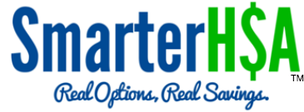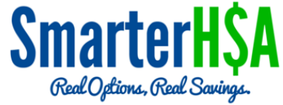|
2020 Small Group Proposed Rates (Employers size 2-50 employees)
Blue Cross 5.70% Blue Plus 7.00% HealthPartners, Inc 6.01% Medica Insurance Company 4.97% PreferredOne Community Health Plan 3.00% Sanford 1.94% UnitedHealthCare 8.87% Official 2020 rates will be released on Oct. 1st. Expect the final rates to fall within a couple of percentage points.
1 Comment
Minimal changes to the Health Savings Account contribution limits for 2020:
HSA contribution limit(employer + employee) Self-only: $3,550 Family: $7,100 HSA catch-up contributions(age 55 or older) $1,000 HDHP minimum deductibles Self-only: $1,400 Family: $2,800 The things holding back the growth of the HSA as a retirement vehicle are aplenty: misconceptions, incorrectly structured health plan designs, lack of employee education, and lazy health brokers. The HSA is not a new concept… in fact, they have been around since 2003.
When compared to a 401 (K), Traditional IRA, and Roth IRA, the Health Savings Account is better as a retirement vehicle, both in the short and long term. There is no other account on the market that allows for tax-savings on contributions, growth, AND distributions (when used for medical, dental, long-term care, vision, Medicare premium). At age 65, you can use the HSA for anything (you pay income tax), just like your IRA. You can invest the funds in your HSA in the exact same way you can your other retirement accounts. For the most savvy investor-you can even pay for medical bills out of pocket, and reimburse yourself tax-free down the road (even 30 years later!). Why isn’t your financial advisor telling you this? They don’t make any money when you and your employees put your money in an HSA. They want you to have as much free cash as possible to put into accounts that they do make money: IRAs, 401 (k), stocks, bonds, and cash value life insurance. Why isn’t your current benefit broker/advisor/consultant/agent telling you more about the HSA? In order to do a great job with this approach, it requires much more work on their end. The easiest route for brokers is to have you renew “as is” with your traditional copay plan, or to keep the HSA option available without educating anyone on it (group meeting once per year, and a benefit packet). They get paid the same whether they do a great job or a poor job. This is not doing you any good, and it’s a disservice to your employees. One of the main concerns for employees when it comes to Health Savings Accounts is they are tied to a less than appealing term- “high deductible health plan”. In order to have an HSA, you need to be enrolled in a HDHP or high deductible health plan. This term is only accurate from a technical sense. The problem with this term is that it is misleading and causes people to fear having to pay huge amounts out of pocket for medical bills. When plans and contributions are structured correctly, this couldn’t be further from the truth! I often see the exact opposite… traditional copay plans have much higher out of pocket exposure and premium costs than said “high deductible health plans”. Our team doesn’t ever use the term HDHP when talking with employers and employees because it is often an inaccurate, confusing, and misleading adjective. If you and your employees aren’t fully leveraging the power of a Health Savings Account, it’s time for a change. We achieve great results for our clients with our consulting program:
These results can be achieved whether you are fully-insured, self-funded, or are considering moving to a reference-based pricing model. Thank you reading, please comment below with any comments or questions. If you have under 50 full-time employees and you are working with a large health benefits brokerage, the odds are high that you’ve experienced some of the following:
Consolidation, mergers, and acquisitions are rampant in the employee benefits brokerage world today and it is causing harm to employers with under 50, and even 100 employees! Large Firms have made a conscious decision to put your small business into a “house account” pool. You will be given a standard list of services, but you will not be given their full attention and effort. You will continue to experience customer service problems and will generally not receive forward-thinking advice. You will be given advice that is geared towards a path of least resistance. At a time when you need help and guidance more than ever, you have been shipped to a junior associate. Your business deserves better. Hiding in plain sight in your benefit enrollment packet is an ultimate financial account called a health savings account.
|

